How a Dream from Bengal Found Its Echo in Africa’s Wilderness - GetBengal Story
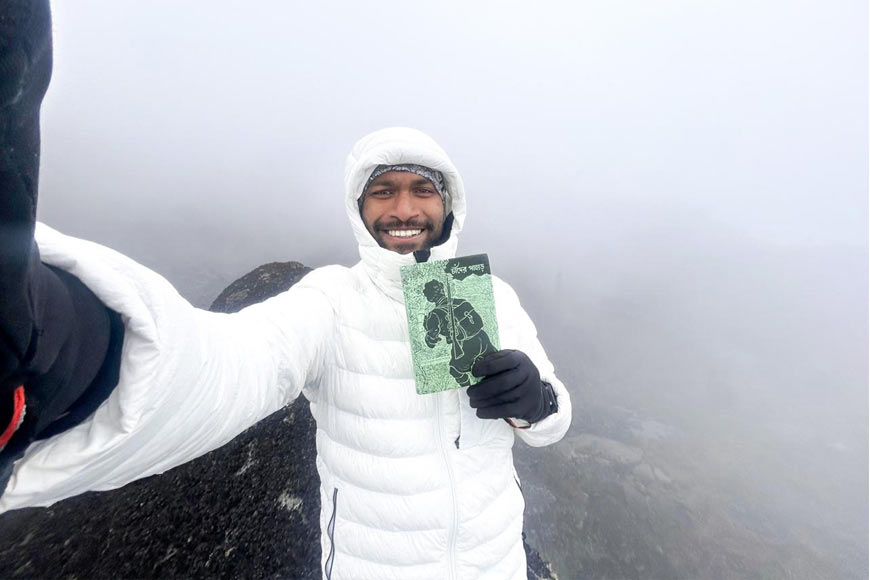
CChander Pahar, written by Bibhutibhushan Bandopadhyay, has been a source of courage, dreams, and discovery for generations. For most, Shankar's journey through the African wilderness exists quite literally only in the ink and pages of literature. For one explorer however, that narrative manifested into a living, breathing adventure.
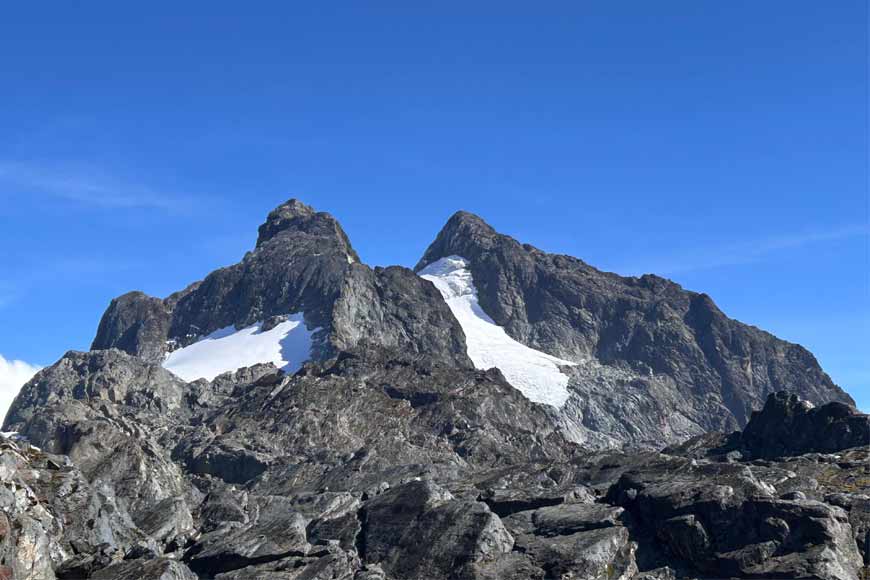
Jyotishko Biswas is a professional mountaineer and outdoor leadership guide from Bengal, who recently uniquely retraced the spirit of Chander Pahar, a journey that existed comfortably between fiction and fact, fantasy and exploration. He traversed rainforests, downpours, torrential rains, the solitude of Africa, and weather instability which equally reflects the rich and timeless longing of adventure, as well as, the legacy of Bibhutibhushan.
In this exclusive conversation with him, he talks about the inspirations behind his adventure retracing the narrative of Chander Pahar, the difficulties encountered, particular moments generalized by the magic of literature, the lessons learned from his experiences, and how all of this terror and joy shaped, enhanced, and impacted his understanding of life, literature, and what it means to be human.
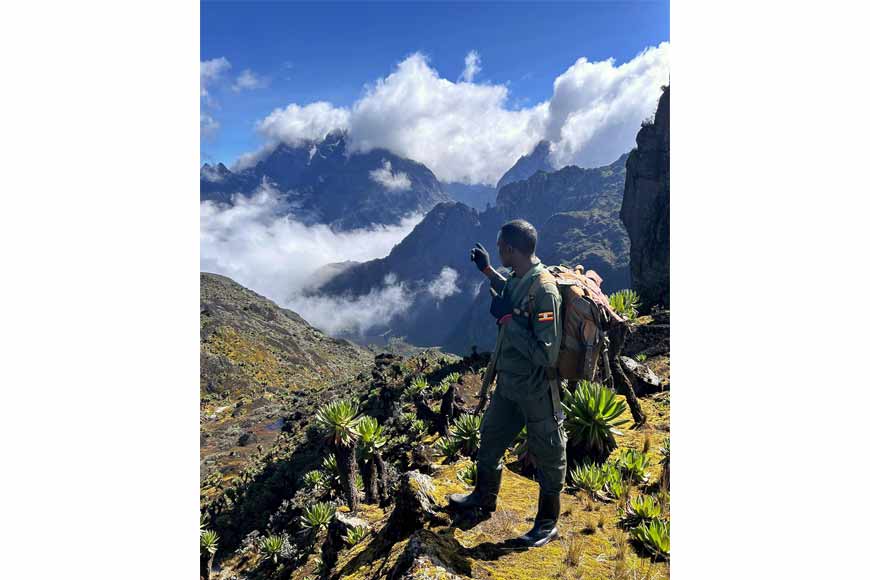
Q: What first inspired you to take this extraordinary journey to Chander Pahar?
A: To begin with, I was certainly motivated by Bibhutibhushan Bandopadhyay! His character Shankar — such a deeply charming character — always stood tall, was always calm and ordinary in heart, and always kept going forward. In some ways, I have always felt that my own life developed along those lines since I was tiny. So I imagine the combination of Bibhutibhushan and Shankar makes it quite interesting. We have all read Chander Pahar as kids, and somewhere deep inside, I have often asked myself — how would it feel like to do something like that?
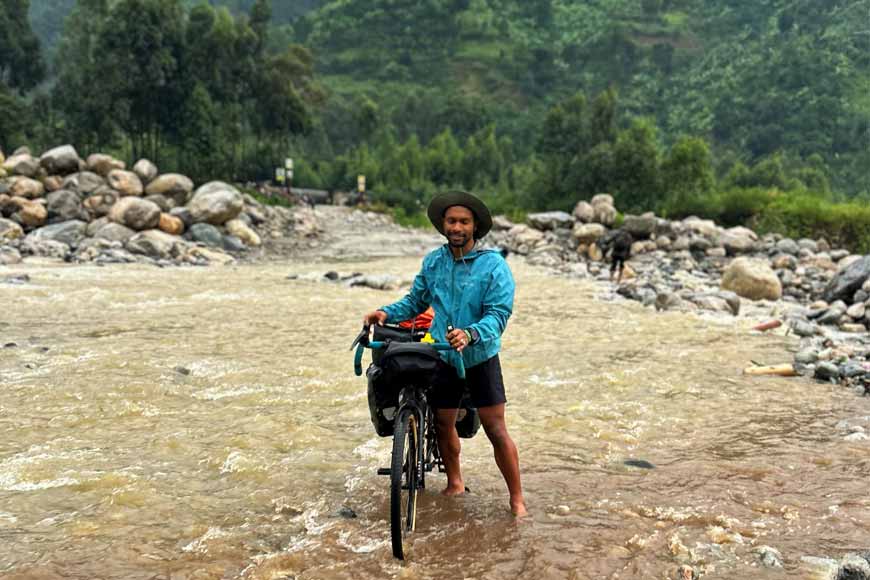
Q: How did you prepare yourself — mentally, physically, and logistically — for this journey?
A: For me, the main preparation was the concept of understanding that I was going to a different continent, completely separated from anything I found familiar and known. I let destiny take me because there was a voice saying inside me — this had to happen. That if I didn’t do it, I would be just making excuses. So for me, that is how I mentally prepared myself. Physically, I’ve been cycling and mountaineering for the past eight years.
And logistically, since I’m a professional mountaineer and outdoor leader, my profession itself helped me manage things quite well on that front.
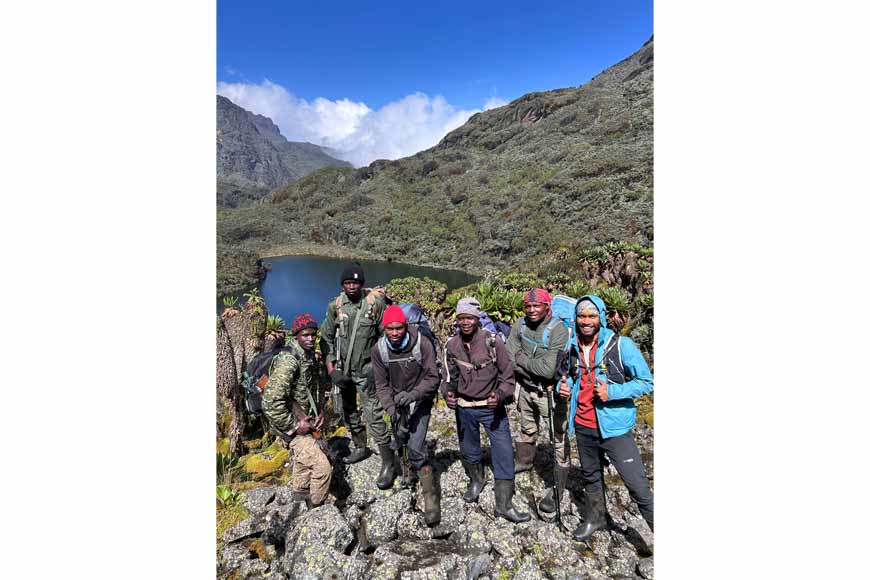
Q: What was the most challenging moment during your Chander Pahar expedition?
A: The most challenging part was reaching the mountain. The terrain was incredibly dense and difficult. The Himalayas are different — I’ve been training there for 8–10 years — but this was nothing like that. Here there’s a rainforest, 98% of which is still unexplored. It rains almost 350 days a year — that was the toughest part. And reaching Goldenio Lengai (Mount Lengai) itself was another huge challenge — the road was extremely difficult!
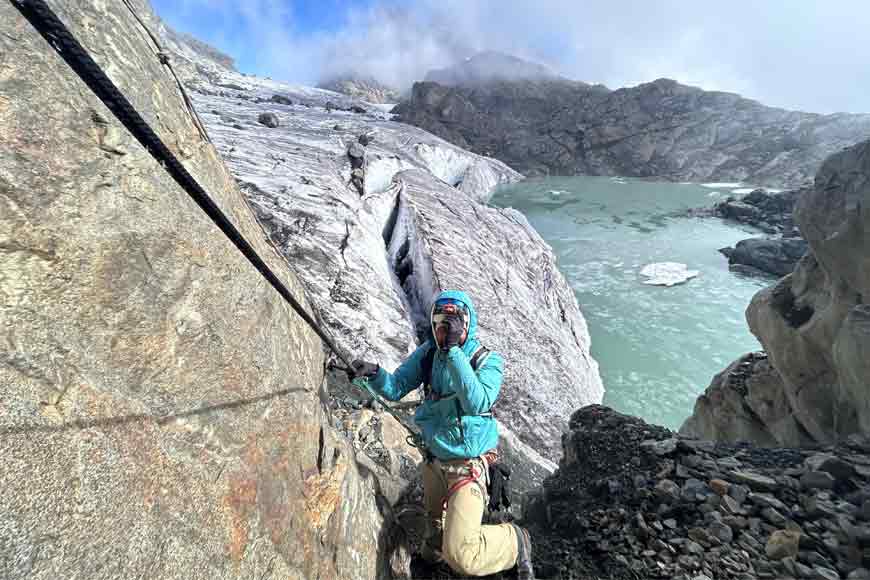
Q: Did you have any encounter with wildlife or natural elements that reminded you of the novel?
A: Wildlife encounters? Oh yes, definitely! While passing by the Elizabeth National Park, I saw plenty of wildlife — real, wild elephants came right onto the road. I had to wait a long time before I could cross. Also, just like in the novel, my guide Bernard spoke about okapis and bush pigs during the climb — both are rare and dangerous animals. Luckily (or unluckily!) I didn’t see them — if I had, that would have made quite a story!
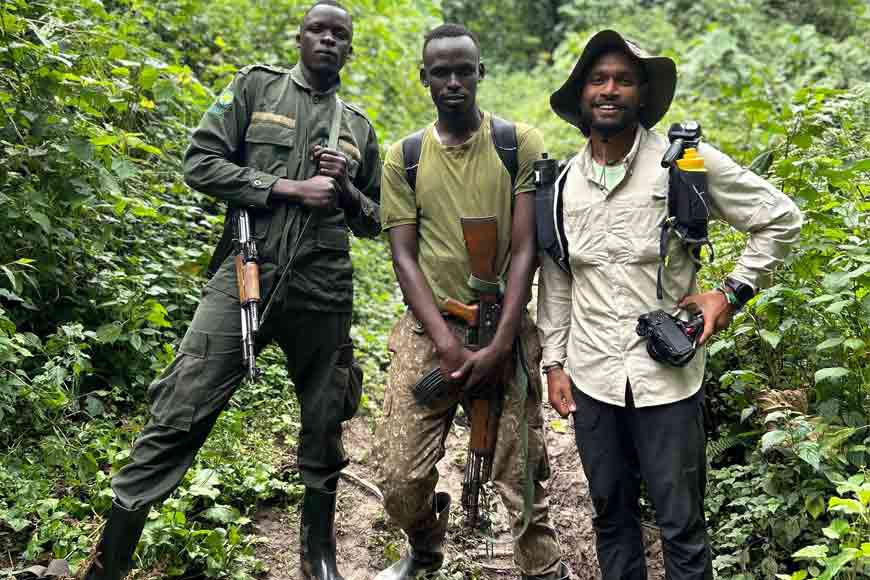
Q: Was there any point when you wanted to give up? What kept you going?
A: Yes, I did feel like giving up on several occasions - I asked myself why am I doing this and what for? But seeing that I had made a promise to my father to complete it and also that I wanted to set an example for my fellow Bengalis allowed giving up to be a bit hypocritical and therefore, did not really seem an option. This was something I had planned for 10–11 years — so even when the thought of giving up came, there was no second question. I had to keep going.
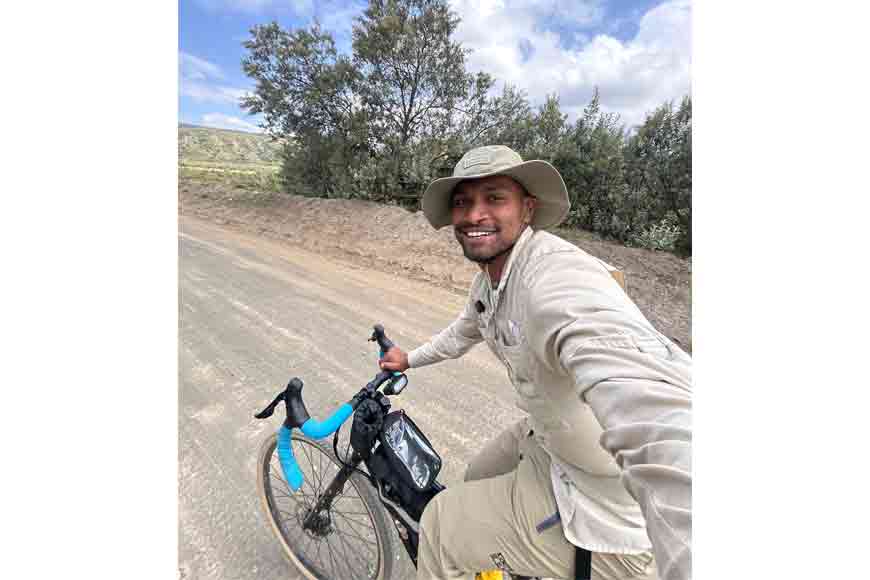
Q: Were there any unexpected discoveries or coincidences that felt almost magical?
A: Unexpected? Yes — the way things unfolded was exactly how Bibhutibhushan described them in his story. It was fascinating! The resemblance between fiction and reality was uncanny.
One night I camped in front of Mount Lengai — known as the “Agnideber Sojja” — and I remember thinking, if something mysterious happened here right now, it would truly feel magical!
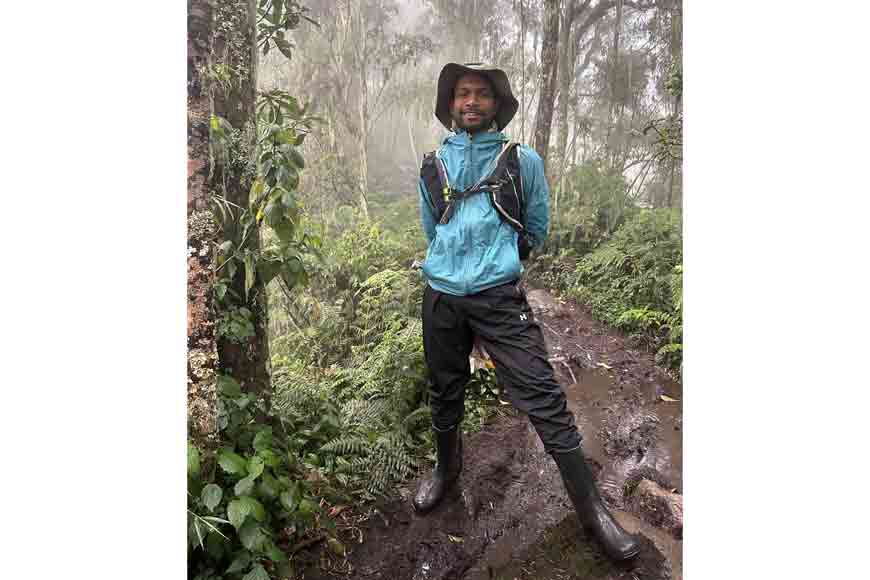
Q: Did you experience any moment that made you think, “This is exactly what Bibhutibhushan described”?
A: See, the geographical coordinates and the fictional ones are completely different — there’s no exact match. Yes, there are a few places that resemble his descriptions, but real Africa is quite different. However, if you look at it from the perspective of that time, it truly feels more adventurous — just as he imagined.
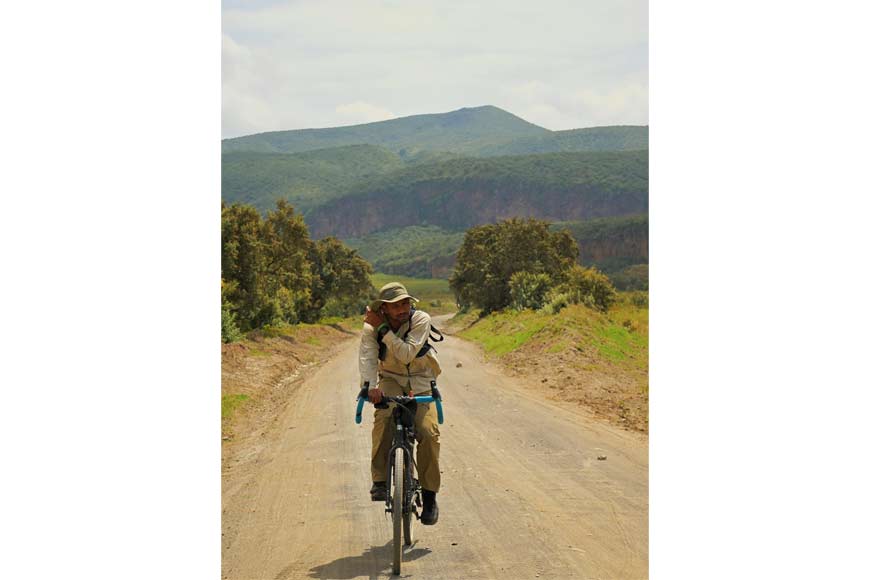
Q: If Bibhutibhushan’s Shankar were real, what do you think he’d say about your expedition?
A: If Shankar were real, I’d love to hear about his experiences — his expedition was far more dangerous and daring; words can’t even describe it!
But standing in today’s time, I’d say that funding an expedition is a major challenge. With sponsorship, things could have been a bit easier. But since I live in a village, I have no big contacts, connections, or resources. Some companies did approach me with offers, but I refused — because I believe Shankar’s character represents self-reliance, a person who doesn’t ask for help. So following that spirit felt like an achievement in itself for me!
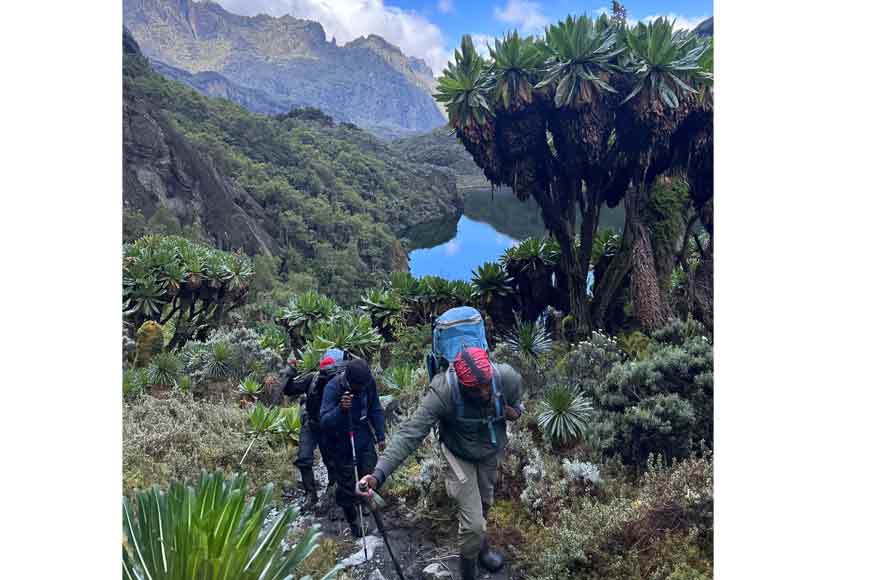
Q: How do you interpret Chander Pahar today — is it just an adventure tale or a deeper metaphor for human aspiration?
A: Chander Pahar is a story that keeps Bengalis alive at heart. I believe every one of us should draw inspiration from Shankar’s character. He’s an extraordinary human being.
I don’t know if I’m worthy of living by his ideals, but if I can absorb even 1% of Shankar’s spirit, that will be my greatest reward.
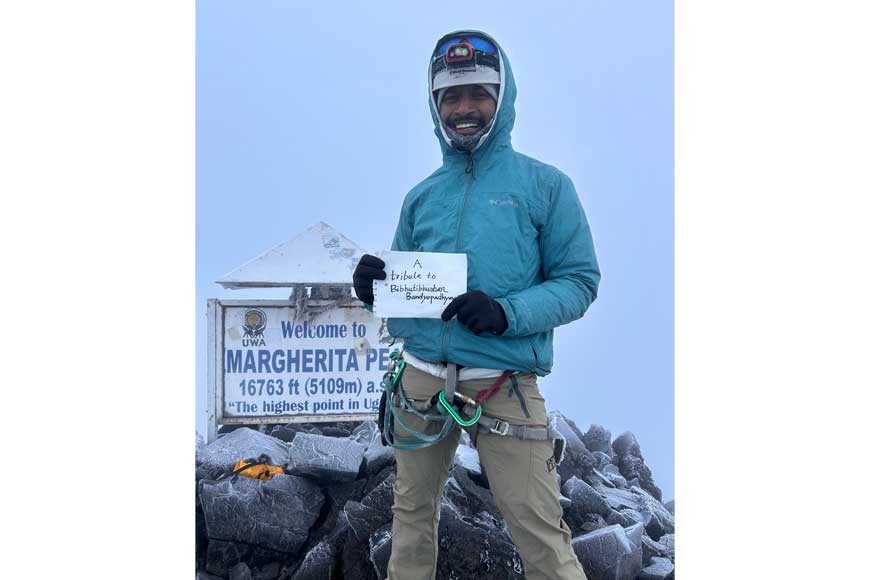
Q: After returning, how has this experience changed your perspective on adventure, literature, and life itself?
A: Africa is incredibly difficult — there’s extreme poverty and deprivation. As I reflect on that reality in relation to my own life, I realize how peaceful and blessed my life indeed is. But was it just a journey — or was it a lesson of life — a lesson of love and humanity? I've been on many adventures before, but none that fostered a connection with people in a way that I did in Darjeeling. So Chander Pahar is not just a tale; it's a bit of a holy book for travelers — a manual on being a better human being. As for life lessons, if Bibhutibhushan created something divine and I could experience even 1% of it, then my journey is certainly worth it.
It truly changed my perspective on life — expressing what I felt deep inside is difficult, but it has completely transformed how I see the world.
As he says, his voice has a quiet fire – the same fire that inspired Shankar to explore the unknown. For Jyotishko Biswas, this journey was a lot more than climbing mountains or seeking a fictional path – it was about purpose, about courage, and a deeper relationship with the meaning of life.
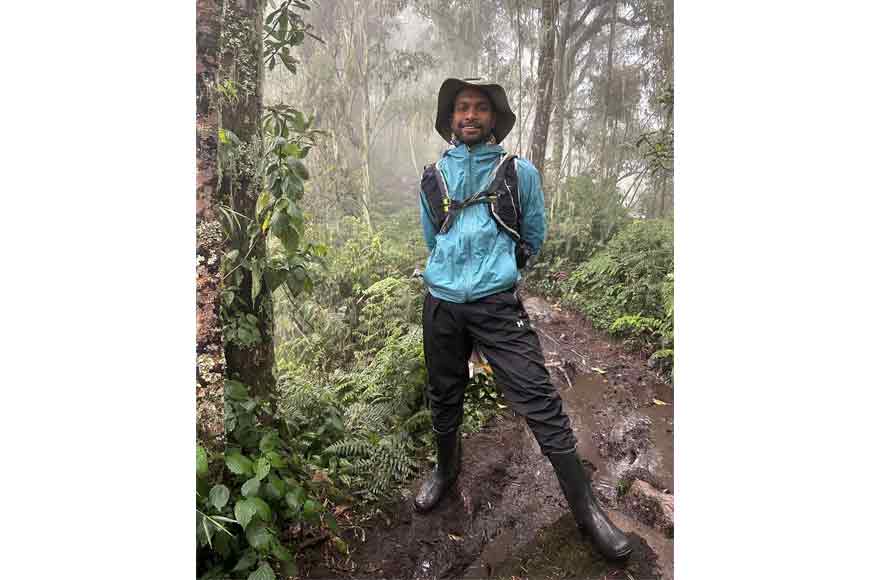
Africa was a challenge, but it offered him something much harder to get – it was gratitude from people he had never met before, humility, and love. He didn’t come back to be the same person who left - the man who had truly lived a story that only few could dream of reading.
He said, "Chander Pahar is not just an adventure, it’s a life style."
And he reminds us, maybe the biggest mountain we can climb is us – to keep dreaming, to keep believing, and to never stop walking toward our own horizons.










